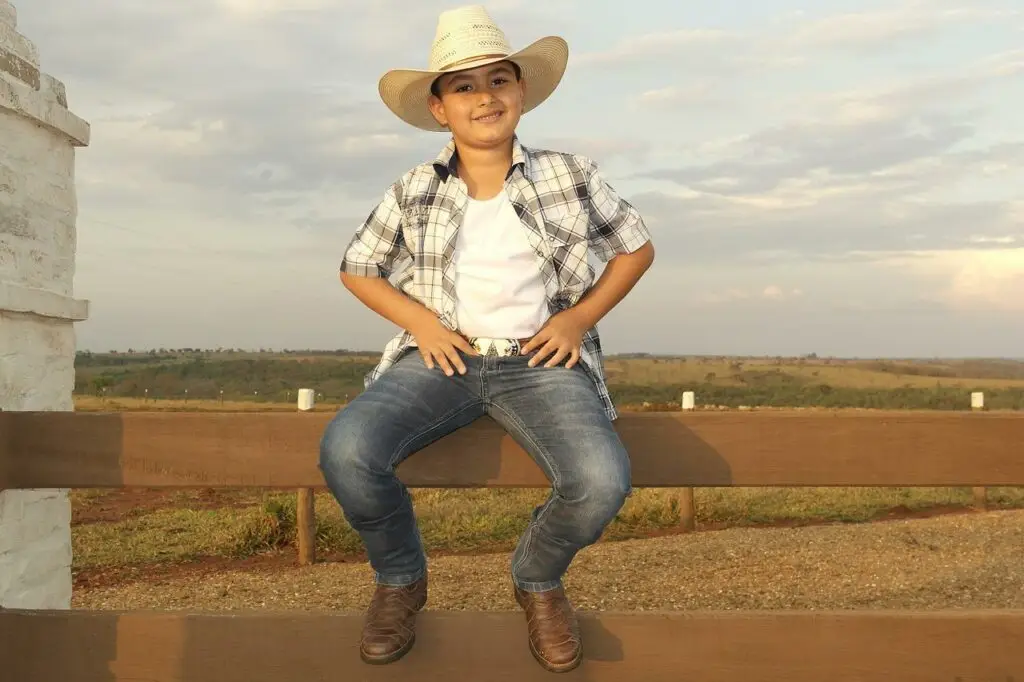Forgive Generously

I’ve been married 36 years and am still learning what makes a good marriage. Recently while traveling I listened to a podcast, Bob Lepine author of Build a Stronger Marriage was sharing insights. He shared late speaker and author Gary Smalley’s most important marriage advice, learn how to resolve conflict and forgive. In fact, be a generous forgiver. I realized it was not only good guidance for marriage but for everyone especially farm families. Conflict Working together in hectic and stressful farming situations can create conflict and misunderstanding for the most loving farm families. Sprinkle in an unexpected financial challenge or equipment breakdown and the calmest person will be agitated. A child psychologist once told us, they act out more at home because they feel most comfortable there. I’ve found it to be true for people of all ages. It’s not all beautiful sunsets and pretty green hayfields on a farm there are disagreements too. How they are handled makes a difference. Assumptions Often disagreements and grudges are a result of an assumption. Assumptions are not necessarily true. It is best to ask the person instead of presuming you know what they are thinking or blaming an action on the person. Sadly, I’ve witnessed farm families broken apart by assumptions lacking facts to prove validity. One or more people are “sure” they know who caused an issue, but there’s no way to prove or disprove it. The accused said they didn’t do it, but still the grudge wears on causing separation in the family. Resolve Conflict Gary Smalley didn’t say if conflict occurs, he said learn how to resolve conflict. He knew arguments were a given in marriage and it’s also a given in farm families. Since it’s a given, the best option is for farm families to learn how to talk through the issues and resolve the conflict. Compromise may be required in order to come to an agreement. Forgive Generously The term indicates a need to forgive freely, not begrudgingly. In fact, the biblical example of 70×7 comes to my mind and I am guessing Gary Smalley was thinking of that too. Forgiving generously requires us to completely lay down the wrong or the assumption, etc. and never pick it back up. If we do, we need to consciously let it go again, as many times as it takes. Family Held to a Higher Standard Those who forgive strangers ought to also eagerly forgive family members. Afterall we are called to forgive both. Many farm families refuse to acknowledge direct relatives for various reasons. The same people will agree generous forgiveness is a great marriage tip and confirm the biblical 70×7 example. Farm families are not exempt. It appears the expectation of family is perfection and unfortunately people aren’t perfect, and things happen. Family is too precious. Don’t give up the ability to communicate and cherish blood relatives because of hurt feelings, conflict, or old issues. Begin the conversation and the healing today, swallow your pride and take a step forward to mend broken relationships and begin the forgiveness process.
Family Communication for Farm Succession: Tips for the Jr & Sr Generation

Family communication for farm succession is key to a successful transition plan.
The Invasives Creep Up on Us

Every time I glanced at my flower bed; I saw them. Yet others didn’t. An invasive flowering plant had gotten away from me. Very early in the season I pulled some out, but I was in a hurry and didn’t get them all. Short on time I let it go. I knew I should address the issue by setting time aside to free my flower garden of them, but I didn’t. This morning as I was finally removing the invasive flower, I realized I had a very pretty lily that was almost snuffed out by the invasive. Thankfully it still has a few small blooms and was uncovered in time for the plant to regain its strength. As I was pulling weeds and the overgrown invasive the wise words of a renowned farm succession expert rang in my head. Attorney John Baker of Iowa State Beginning Farmer Center, often remarked, “You have what you put up with.” A simply yet profound statement of truth. Farm Invasives Not all of the invasives are in farm fields, hedgerows, or forests. They can be found in the financials, equipment, structures, employees, working relationships, family members and family dynamics, to name a few. They are items that we “put up with,” avoid addressing or ignore. However, as with all invasives the issues grow bigger and out of control if left go. Examples include: 1. Financials It often starts unintentionally when savings or personal funds are tapped to pay the bills. Thinking next year, we’ll catch up and get back on track. Debt increases and the conversations around farm financials are tense. It could be financials have never been a strong point but we’re too proud to ask for help. 2. Equipment Farm equipment can present safety hazards. Unaddressed safety hazards are accidents waiting to happen. Accidents harm people, livestock, equipment and result in potential for legal action. Time and dollars spent fixing farm equipment prevent down time when you most need the equipment, time spent in court or heaven forbid lifetime regret of loss of life. If the hazard cannot be fixed, it may be time to develop a plan to replace the equipment. 3. Structures Farms often have a wide array of structures from historic to newer and the challenges are as varied as the buildings. It’s easy to let building issues go because they are lower on the project list. Be careful the issues don’t become safety hazards or prevent the building from functioning as it should to safely hold livestock, feed stuffs, or equipment. 4. People Issues The messiest invasive of all are people issues. There may be communication challenges including personality struggles or conflict resolution issues. It may be a learned defensiveness or wall that’s been put up as the result of an abusive professional or personal relationship. There may be a toxic relationship among family members or employees that has gone unaddressed. Remember you have what you put up with and it’s time to deal with the issues and set boundaries. Bad behavior is unacceptable behavior. Removing the Invasives The first step is acknowledging the issue(s) we have to admit there is a problem in order to deal with it. Working together with others on the farm to address financials, equipment and structure problems will spread the burden and creative thinking among many people and often results in the best potential solutions. The best option for the farm may be the hardest to accept. The best option may require transitioning farm enterprises to a more financially feasible enterprise for the farm. A piece of grandpa’s farm equipment may need to be replaced because it’s too dangerous and someone is going to get hurt. A farm building from the 1930’s may have outlived the remodels and need replaced. Working together the farm team can determine the best options for the farm. The Root of the Problem If people issues are the root of the problem, they need dealt with first. If inappropriate actions have been accepted in the past it will take time and patience to change. Addressing issues one on one may be the best place to start. We may uncover someone dealing with personal issues/crises and the frustration from those are spilling over on the farm or vice versa. The person may not realize their words or actions are negatively impacting others and the farm. Things may also be addressed in the group setting of a farm meeting. The best way to ensure all know behavior expectations is to provide meeting guidelines and follow them. Reminders may be required throughout the meeting until everyone gets used to the new protocol. A prop may be used to ensure everyone is heard during the meeting. For example, if one person tends to dominate the meeting, pass around a small stress ball or other object and the person in possession of the item has the floor and the rest of us listen. Once they are done speaking the object is passed on to the next person. This also gives a voice to those who normally don’t speak up. Everyone listens to learn while others are speaking. The meeting facilitator or leader should remind people there are not any wrong answers and we should use our listening skills to learn other points of view. It will require practice to adjust but the method works. The Beauty of an Invasive Free Farm The best results occur when invasives are removed root and all. It’s also the most challenging method. Don’t get overwhelmed by the immensity of the issues. Set aside time to focus on one invasive at a time. As everyone’s voices are heard and positive results seen we will be motivated to continue the process to address other farm challenges. One step at a time we can get rid of invasives and renew farm vigor.
Farms are Always Transitioned to Imperfect People

Are you waiting for that perfect moment when everyone is “ready” to successfully transition your family farm to a next generation? Many use that logic. But that moment will never occur. There are no perfect moments or people. Our world is full of imperfect people striving to advance their skill set through experience and knowledge. Now that we’ve got that out of the way, let’s deal with the imperfect reality. An open mind is a huge asset for a farm transition. How so? Be open to listen to what the other person has to say, what their dreams are for the farm, and how they hope to accomplish those aspirations. When each truly hears what the other is saying, a bridge is built between the two parties – one that provides a strong foundation and solid future. Best results happen when the parties lay their “what ifs” on the table and let go of fears of the future’s unforeseen. Trust provides a solid stepping stone when you know the next generation will do all in their power to ensure the farm’s success. The next generation’s goal is always success of the farm and to transition it to yet another generation. That’s the foundation of American agriculture. Elements for Success You can never start planning for transition too early. The greatest risk is starting too late. Next-gens can grow impatient and apply their energies to establish lives elsewhere, especially if they think it won’t happen through the family farm. Bring everyone to the table to discuss the options. Communicate willingly. Share each person’s goals for the farm. Patiently listen, share honestly and appreciate others’ perspective and points of view. Compromise is imperative as people have different ideas. Develop a plan that works for everyone. Work through fair versus equal considerations. Is fair required to ensure transition of the farm to the next generation? Equal may make an impossible financial scenario for next-gen farmers. Equal may mean the farm has to be sold beyond the family to pay debt to siblings. Make a timeline and stick to it. A timeline provides accountability for all involved. Yes, challenges may arise that require timeline adjustments. But it should be an exception, not the norm. Include ag professionals experienced in farm transition with farm expertise pertinent to the needs of your business. Allow qualified attorneys to complete the necessary documents to put it all in writing. Remember, farm transition is a work in progress. Like any business, it’ll require adjustment as time passes and circumstances change. Without planning, your farm may not stay in farming, much less stay in the family. Conversation Starters PA Farm Link provides tools to help get the conversation started. The Planning the Future of Your Farm workbook is available and can be shared with farm family members. It’s a proven tool that has assisted many farmers as they work through the succession planning process. Another option is to share tools from Succession / Transition | PA Farm Link have farming partners or family members listen to the available podcasts and webinars. They are very informative and available 24/7 when conversation opportunities arise. PA Farm Link also will connect you with facilitators to facilitate farm family meetings and/or provide referrals to ag professionals for planning purposes. Have a particular challenging situation? You’d be surprised the obstacles farmers have overcome to ensure the succession of the farm to the next generation. An ag professional can help get the process started and provide direction.
Are We the Examples Our Next-Gens Need?

Remembering those who came before us can help us grapple with our own challenges. My maternal great-grandmother, for instance, navigated a covered wagon from Oregon to Pennsylvania with two young children. Her husband sent her ahead to ensure they made it to Pennsylvania before snow hit. My mother amazed cancer specialists in Pittsburgh as faith, farm life and meds provided a much better outcome than they predicted. All the while, she remained an active partner on the farm. Widowed rather young, my paternal great aunt was the feistiest! She worked to make ends meet for herself and two children, and was best known for her cooking and baking. Aunt Cora gifted homemade foods and crocheted items to family. She refused to install an indoor bathroom and never admitted her true age! My paternal grandmother was always on the move around the farm and in the community. One of her biggest unspoken challenges was losing her second child during an extremely difficult birth. I can’t imagine the emotional pain. Reality Threads Then and Now Together Every generation has faced huge challenges, and each overcomes them in their own way. The trials are different, but you and I aren’t the first to face them. One common denominator among those I mentioned was their positive attitudes. Not once did I hear them complaining about the situations they wrestled with. Instead, they chose not to let those trials ruin their life or their positive approach. We are not the first to face them; nor will we be the last. And, it’s a proven medical fact: A positive attitude is a must-have when fighting certain diseases as well as farming challenges. A Good Example for Our Next-Gens? Think about what examples you’re portraying for your next generation as you deal with tough situations. We all know cursing, swearing and blaming others or self won’t solve anything. Yes, a diagnosis or crisis may warrant it. But trust me, it’s not a solution. It usually makes the situation worse. It takes time but we each have a choice. We can choose to seek professional help while leaning on God, loved ones and friends to navigate our way through the decisions with a positive attitude. Too often, we ask: “Why me? What have I done to deserve this.” Refusing to make tough decisions or ignoring the situation allows it to get worse. We can learn to celebrate each day and give the battle all we’ve got with a positive attitude. Then seek the help we need. We also can embrace the people who support us through kind words, acts of kindness and prayer. Accept the blessing they provide. When we do so, we become examples for our next generation. Thankfulness is Part of the Package I’m thankful for the strong, feisty women who came before me. They provided great examples for me as I faced a cancer diagnosis and treatment. I’m thankful for prayer warriors continually lifting me in prayer during treatments and stem cell transplant, talented medical staff, and God’s amazing answers to prayer. Receiving them as blessings is huge. Whether it’s a physical or mental health crisis, succession or farming crisis, there are always professionals, family and friends to support and help us when we need them. Our job is to accept the help and answers they provide. Then, bravely move forward as required, leaving a legacy of hope and resiliency. Subscribe to Our Succession Blog & Newsletters Today Email